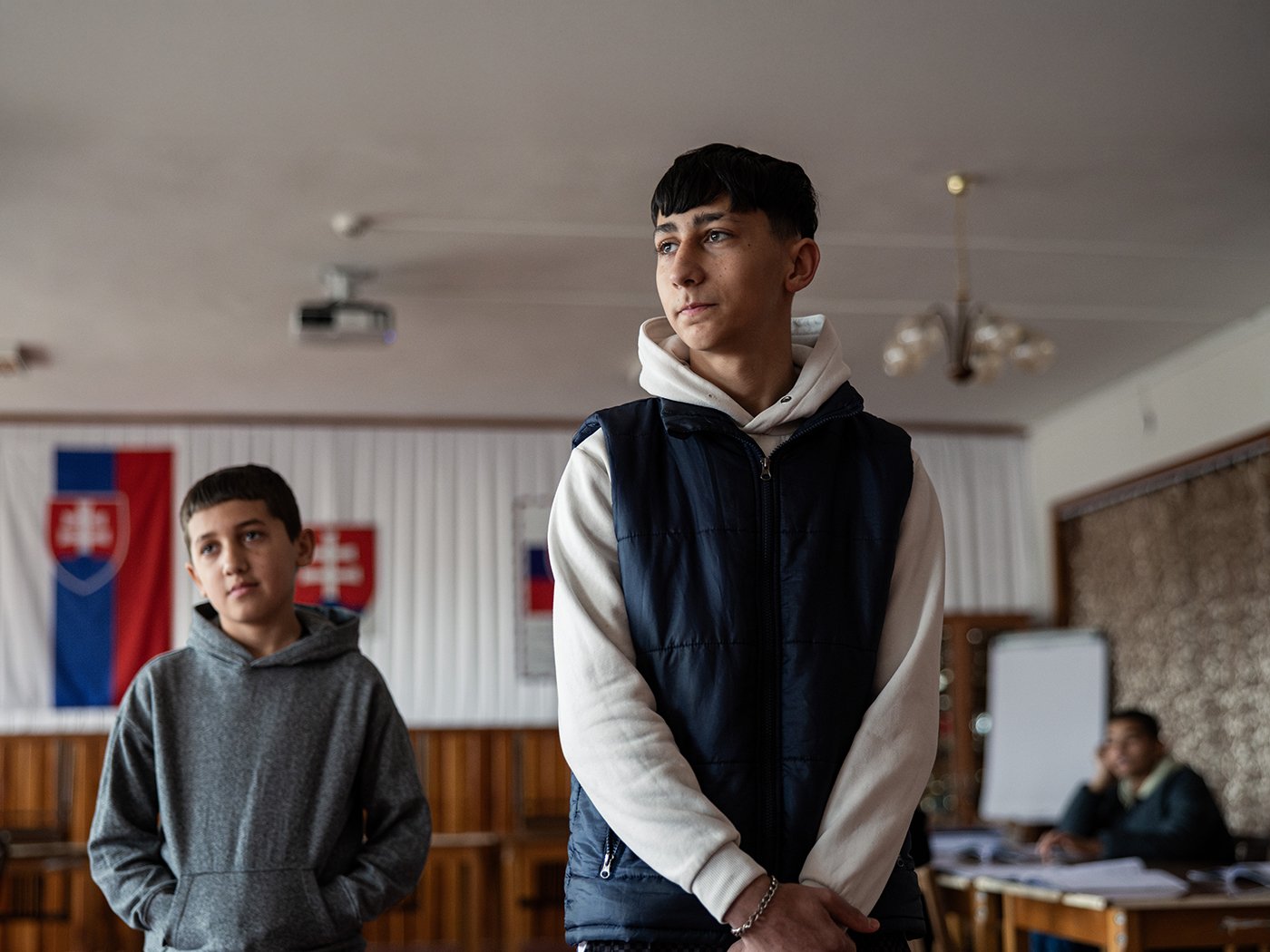Europe's security relies not only on defence spending but also on fostering social cohesion. Including Roma communities is essential for internal stability.
At last week's NATO summit in The Hague, member states committed to a significant increase in defence spending, pledging to allocate 5% of their GDP annually to defence and security-related expenditures by 2035. While this move aims to bolster NATO's collective defence capabilities and ensure Europe's security—a need made more urgent by the Trump administration’s shift away from European allies—it overlooks a critical internal challenge: the persistent exclusion of Roma communities in Europe.
Balancing defence and social spending will be key to ensuring Europe’s long-term stability and resilience. Apart from weaponry and infrastructure, though, investing in the Roma and other marginalised communities is crucial to strengthening the EU’s internal fabric and long-term security. As Europe faces multiple, converging threats—such as the war in Ukraine, rising tensions in the Middle East and the Sahel, the weaponisation of migration, cyberattacks and the erosion of democratic freedoms—internal resilience has never been more important.
Social cohesion, driven by inclusion and trust, is Europe's strongest defence, but leaving Roma communities behind undermines this. Excluding Roma undercuts the very foundations of security and resilience; fostering their inclusion is not just a moral imperative—it’s a strategic necessity.
The Invisible Glue of Stability
The Council of Europe defines social cohesion as the capacity of a society to ensure the well-being of all its members, minimising disparities and avoiding marginalisation. The World Bank describes it as “the glue that bonds society together, promoting harmony, a sense of community, and a degree of commitment to promoting the common good.” Without social cohesion, even the strongest defences risk being undermined by internal fractures, polarisation and manipulation by external actors.
Social cohesion and security are inseparable. A society lacking cohesion is marked by deep divisions, mistrust and exclusion. Fragmented societies are prone to extremism and internal unrest and are easier targets for hybrid threats such as disinformation campaigns. This also erodes trust in democratic institutions and weakens governance. The recent riots in Northern Ireland, in which Roma families were driven from their homes, show how internal social tensions can erupt into violence, further damaging public trust and social order, weakening countries from within.
A Missed Warning
EU leaders have consistently recognised this link. The 2022 Versailles Declaration reaffirmed that promoting social cohesion is not merely a social goal but a strategic necessity for preserving peace and democracy within the EU. The European Committee of the Regions, in its 2024 opinion on the future of Cohesion Policy post-2027, stressed that ensuring no one is left behind is critical for the EU’s long-term resilience and stability.
Despite this recognition, Roma communities continue to face persistent exclusion in education, employment, housing, healthcare and political representation. Regardless of the EU’s economic strength, many Roma live in conditions comparable to some of the world’s poorest regions. Only 51% of Roma children attend preschool, for instance, and 56% percent of young Roma are not in education, employment or training—five times the overall EU rate of 11%. Roma unemployment stands at 34%.
Across Europe, tensions between marginalised Roma communities and local authorities have led to protests—in the Czech Republic in 2021, for example, and Greece in 2022—demonstrating how exclusion erodes public trust and social order. During the COVID-19 pandemic, Roma communities were disproportionately affected by disinformation campaigns and limited healthcare access, highlighting how marginalisation amplifies vulnerability in times of crisis. Eliminating this inequality, therefore, is not just a question of fairness but one of economic opportunity and stability.
Strategic Investment
Inclusion benefits both Roma communities and Europe. It means, for example, investing in housing and healthcare by addressing systemic challenges that undermine Roma families’ well-being, including poor living conditions and limited access to essential services. It means supporting Roma entrepreneurs—not just through public commitments, but by enabling access to capital, mentoring and business support services that help Roma-owned enterprises grow, create jobs and strengthen their communities. And it means investing in education and training for Roma youth through stable long-term programmes—such as afterschool learning, home-based tutoring and digital education models—to ensure they are equipped for Europe’s transforming economies.
These are not just social initiatives—they are strategic investments in the future of Europe, creating an environment where Roma can fully contribute to the economic, social, political and cultural life of the continent.
True investment in security goes beyond military spending. To withstand the global challenges ahead, the European Union must first strengthen solidarity within its own borders, ensuring that no community is left behind.

Lolita Hasani Grasmann
Institutional Communication and Cooperation Advisor
The latest

Serbia Must Amend Missing Persons Alert System to Protect Vulnerable Adults

Constitutional Review of the Šutar Law Confirms Serious Rule-of-Law Concerns

Europe’s Growth Depends on Roma Talent
Browse by category
Campaigns
Events
Facts
Press
Voices
For media inquiries:
[email protected]Sign up here so you don’t miss out on campaign updates, upcoming events and other news from the Roma Foundation for Europe and our network.
Sign up for our newsletter